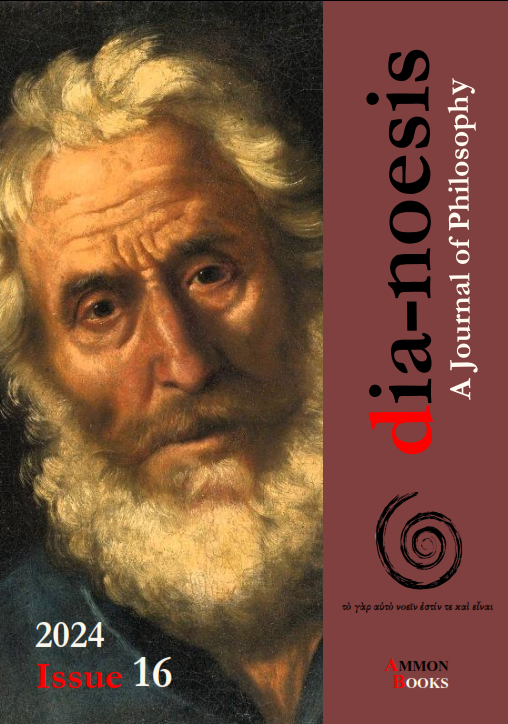Between Chaos and Cosmic Order The Ambivalent Disposition of Matter in Middle Platonism

Abstract
In Timaeus (30a ff.), Plato presents matter as a passive principle, inherently predisposed to disorder, subject to mechanistic necessity, and apparently devoid of any volition or predisposition towards the Demiurge. This cosmological framework, however, is not uniformly embraced by Middle Platonists. Instead, three divergent conceptions of matter emerge: one aligned with Plato’s notion of passivity, another in which matter resists the Demiurge with malevolence, and a third where it actively seeks union with the intelligible realm. This study pursues two primary objectives: first, to explore the ontological status and disposition of matter in relation to the intelligible within Middle Platonic thought; second, to elucidate why matter assumes such antithetical attributes.
Article Details
- How to Cite
-
Dimakopoulos, S. (2024). Between Chaos and Cosmic Order: The Ambivalent Disposition of Matter in Middle Platonism. Dia-Noesis: A Journal of Philosophy, 16, 55–78. https://doi.org/10.12681/dia.39532
- Section
- Articles


